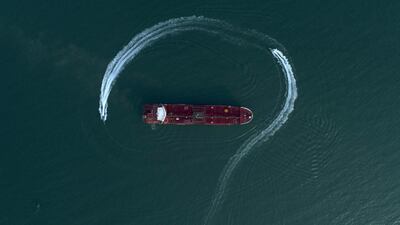Israel appeared to be responsible a cyber attack this month on computers at Iran's Shahid Rajaee port that caused back ups on waterways and roads leading to the facility, the Washington Post reported on Monday.
Citing unnamed US and foreign government officials, the Post said the May 9 disruption of Iranian computers was "presumably" in retaliation for an attempted cyber attack on rural water distribution systems in Israel.
The managing director of Iran's Ports and Maritime Organisation, Mohammad Rastad, told Iran's ILNA news agency last week that the attack did not penetrate the organisation's computers but damaged a number of private operating systems.
A foreign government security official said, however, the attack was "highly accurate" and the damage to the Iranian port was more serious than described in official Iranian accounts, according to the Post.
The newspaper reported on May 8 that Iran was linked to the attempted cyber attack on the Israeli water network in April. The intrusion was detected and thwarted before significant damage was done, the Post said, citing official sources.
Iran views Israel as its arch-enemy and the two are involved in a shadow war across the Middle East. Israel has carried out strikes on Iranian targets in Syria and assassinations against Lebanese Hezbollah officials linked to Iran.
Rallies next week in Tehran to mark the annual Quds Day against Israel will involve Iranians driving in vehicles not marching through the streets, to avoid spreading the coronavirus, Iranian President Hassan Rouhani said on state television on Saturday.
The elite Islamic Revolutionary Guard Corps would be in charge of organising the rallies, Mr Rouhani said, adding that those joining in could still chant slogans from their vehicles and wave flags.
Rallies to mark Quds Day, which uses the Arabic name for Jerusalem, are held in towns and cities across the country and aim to show of support for the Palestinians. Typically, those marching chant "Death to Israel" and burn the Israeli flag.
Mr Rouhani said Quds Day, held each year on the last Friday of the Muslim fasting month of Ramadan which falls on May 22, would go ahead as normal in 218 towns and cities where the coronavirus outbreak has been less severe than the capital.
"The coronavirus danger is still there, but our situation is better than before," he said. "We have crossed the main peak."
As of Saturday, Iran's death toll from the pandemic stood at 6,937 with 118,392 diagnosed cases, the health ministry said.

